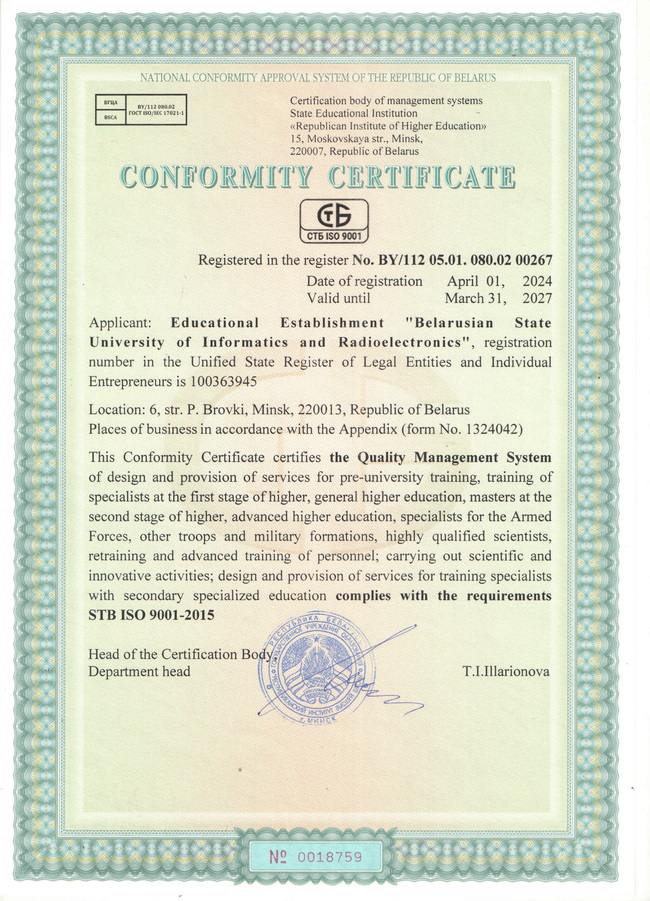Quality Management

On 24 December 2010 the Quality Management System of Belarusian State University of Informatics and Radioelectronics was certified for the international quality management standard ISO 9001 in the national system of education and for the German TGA certification system. The University QMS is based on a process approach and enables the University to identify, measure, control and improve the core processes that will ultimately lead to the improvement of the BSUIR educational, research and innovation activities.
The Vice-Rector for Education & Quality Management is responsible for the QMS functioning and control. Additionally, a Quality Management Department, the Council on Quality and a group of internal auditors have been created in the University to provide permanent monitoring, measure and analysis of the QMS processes.
Quality Policy is the main document of the University QMS. It stipulates the quality objectives and tasks of the University and the acceptable level of quality. The following factors are taken into account when developing the University Quality Policy:
- strategic priorities for the University development
- future enhancements to be made in order to guarantee successful University activity
- current results of customer and stakeholder satisfaction surveys
- reports about the University QMS function during the previous periods
- resources available for the Quality Policy realisation
The University Quality Management System is divided into the following categories:
– central management and leadership processes
– core processes
– supporting processes
– monitoring, measure and analysis processes
These processes are documented in the corresponding process descriptions. Process documentation at BSUIR has developed over the years and its format has been continuously adapted to current requirements.
The quality management methods are usually seen as a cycle of planning, doing, checking and acting, thus a typical structure of the QMS processes management includes the following steps:
– planning
– process control
– process quality guaranteeing
– process quality reviewing
– process quality enhancement
The University Quality Management System is subject to regular internal audit, review of its effectiveness and corrective measures. Permanent enhancement is provided on the basis of systematical quality review of the University services, periodic monitoring and analysis of the QMS functioning, as well as of customers and stakeholders feedback
